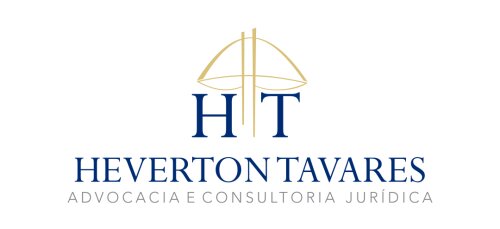Best Animal Law Lawyers in Brazil
Share your needs with us, get contacted by law firms.
Free. Takes 2 min.
Or refine your search by selecting a city:
List of the best lawyers in Brazil
About Animal Law in Brazil
Animal Law in Brazil encompasses a broad spectrum of legal measures designed to protect animals and ensure their welfare. It addresses issues ranging from animal cruelty and rights to conservation and biodiversity. Brazil is known for its rich biodiversity, making the development and enforcement of Animal Law critical. The country has been progressively incorporating international concepts of animal welfare into its legislation, making it an area of evolving practice and reform.
Why You May Need a Lawyer
There are numerous situations where individuals or organizations might seek legal advice in Animal Law. These include: dealing with accusations of animal cruelty, navigating laws related to animal breeding, ensuring compliance with welfare regulations in industries such as agriculture and entertainment, addressing wildlife conservation issues, defending the rights of animals in captivity, or claiming damages in cases of harm to animals. Legal expertise can be crucial in these cases to ensure the complex and sensitive nature of animal-related laws is properly applied.
Local Laws Overview
Brazilian Animal Law is grounded in several key legislations. The Federal Constitution includes principles that underpin environmental protection, which extends to animal welfare. The primary legislation for animal protection is the Environmental Crimes Law (Lei de Crimes Ambientais, No. 9,605 of 1998), which sets penalties for mistreatment and cruelty. Brazil also adheres to international treaties like the Convention on International Trade in Endangered Species (CITES), impacting local practices on wildlife trade. Each state may also have its own additional regulations, reflecting varying approaches and specifics of animal protection across the country.
Frequently Asked Questions
What constitutes animal cruelty under Brazilian law?
Animal cruelty in Brazil is defined as any action that causes unnecessary pain or suffering to an animal, including physical abuse, neglect, and inadequate living conditions.
Are there specific laws protecting wildlife in Brazil?
Yes, Brazil has robust laws protecting wildlife, notably through the Wildlife Protection Act and adherence to CITES, which governs the trade in endangered species.
Is it legal to keep wild animals as pets in Brazil?
Generally, it is illegal to keep wild animals as pets in Brazil without specific licenses and permits due to conservation concerns and potential risks to the species.
What are the penalties for violating animal protection laws in Brazil?
Penalties can range from fines and community service to imprisonment, depending on the severity and nature of the violation.
Can animals be considered victims in legal terms in Brazil?
Yes, animals can be recognized as victims of abuse and mistreatment, leading to criminal cases against perpetrators.
How are animal welfare issues addressed in agriculture and industry?
Brazilian laws require industries to adhere to welfare standards that minimize suffering during activities such as farming, transportation, and slaughter.
Are there animal rights organizations in Brazil that offer legal support?
Yes, several non-profit organizations, such as the Brazilian Environmental Institute, offer legal advice and support in cases related to animal law.
How can someone report animal cruelty in Brazil?
Reports can be made to local authorities, such as the police, Ministry of Environment, or animal control services, who will investigate the allegations.
What are the rights of animals in Brazil's entertainment industries?
There are specific guidelines and laws ensuring the welfare and protection of animals used in entertainment, including circuses, zoos, and films.
Is using animals in scientific research regulated in Brazil?
Yes, strict regulations govern the use of animals in scientific research to ensure humane treatment and justifiable use.
Additional Resources
For more information or assistance, consider reaching out to the following resources: - Brazilian Ministry of the Environment (MMA) - IBAMA (Brazilian Institute of Environment and Renewable Natural Resources) - Various state environmental agencies - Non-governmental organizations like SOS Fauna, World Animal Protection, and Arca Brasil.
Next Steps
If you require legal assistance in Animal Law, consider consulting a specialized attorney with expertise in local and federal regulations. Start by gathering all relevant information and documentation related to your situation. Seek recommendations for a qualified lawyer or legal service, consult with them to understand your rights and obligations, and let them guide you in navigating your specific legal landscape. Understanding the law is crucial, but having professional support can greatly facilitate resolving animal law-related issues effectively.
Lawzana helps you find the best lawyers and law firms in Brazil through a curated and pre-screened list of qualified legal professionals. Our platform offers rankings and detailed profiles of attorneys and law firms, allowing you to compare based on practice areas, including Animal Law, experience, and client feedback.
Each profile includes a description of the firm's areas of practice, client reviews, team members and partners, year of establishment, spoken languages, office locations, contact information, social media presence, and any published articles or resources. Most firms on our platform speak English and are experienced in both local and international legal matters.
Get a quote from top-rated law firms in Brazil — quickly, securely, and without unnecessary hassle.
Disclaimer:
The information provided on this page is for general informational purposes only and does not constitute legal advice. While we strive to ensure the accuracy and relevance of the content, legal information may change over time, and interpretations of the law can vary. You should always consult with a qualified legal professional for advice specific to your situation.
We disclaim all liability for actions taken or not taken based on the content of this page. If you believe any information is incorrect or outdated, please contact us, and we will review and update it where appropriate.
Browse animal law law firms by city in Brazil
Refine your search by selecting a city.















